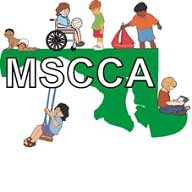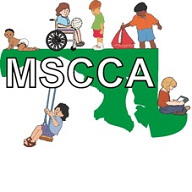Sharing from the Maryland State Department of Education Office of Child Care.
2019 National Survey of Early Care and Education Now Collecting Data in All 50 States and D.C.
February 26, 2019
Dear Early Care and Education Colleague:
We wanted to let you know that data collection for the 2019 National Survey of Early Care and Education (NSECE) is under way in all 50 states and the District of Columbia.
The NSECE is the only national survey of early care and education (ECE) use and availability. The 2012 NSECE has helped us learn an enormous amount about families with young children who use ECE programs and about ECE programs and providers. We are now collecting new, nationally representative information about all segments of early care and education and families’ needs for ECE services, which include child care, Early Head Start and Head Start, and prekindergarten programs. We are excited about the possibility of learning how recent policy and program changes have affected providers and the availability of ECE services since 2012.
The Administration for Children and Families has contracted with NORC at the University of Chicago to conduct the 2019 NSECE. NORC has sent mailings to selected providers and households throughout the country, inviting them to participate in the study. NORC field interviewers will be visiting providers and households in person and calling them by telephone to encourage participation in the study. We are writing you to ask your support for this critical data collection effort. If you are contacted by providers, households, teachers and caregivers, or other members of the general public, please emphasize and reassure those individuals that the 2019 NSECE is a legitimate and vital effort for our programs and our ability to help all our nation’s children get access to high-quality ECE programs.
NORC has a variety of resources for respondents to verify the legitimacy of the study. Interviewers visiting in person will have a NORC badge with a hologram on the back. Respondents may visit this webpage, where the option “How To Identify NORC Interviewers” will allow them to type in the NORC interviewer’s ID number to see a photograph of the interviewer. All NORC staff members have signed legally binding pledges of confidentiality and must abide by a strict code of professional conduct. All project materials will also include a toll-free number, (800) 487-4609, and an email address, [email protected], if you would like to obtain further information about the study.
We include additional NSECE resources and information below. Please do not hesitate to contact the study team with questions or concerns about data collection efforts in your communities. Because the study is being fielded with a statistics-based design, participants need to be contacted by NORC; the NSECE cannot accept volunteers who were not statistically selected.
Thank you in advance for your assistance with this important study.
Information About the 2019 NSECE
A key aim of the 2019 surveys is to provide updated profiles of individuals and programs providing ECE and to describe ECE use in households across the United States. The 2019 NSECE includes center- and home-based provider surveys, a household survey, and a child care workforce survey, all of which are based on nationally representative samples. It is important for us to include a wide range of providers who were scientifically selected, including federal and local agencies. This information will give us a more representative sample that will better inform future policy and research. All data provided by households and providers will be used only for statistical purposes, and the identities of individuals and programs will not be disclosed.
More information about the survey is available on this website. You can also access findings from 2012 via this Web link, where you will find reports and factsheets about the characteristics of the 129,000 center-based programs, 1 million teachers and caregivers working with young children in those programs, and 1 million paid and about 2.7 million unpaid individuals who regularly care for other people’s children at home. In addition, you will find insights into the ECE experiences, choices, and perceptions of the parents and guardians of young children in 2012.


 and then
and then